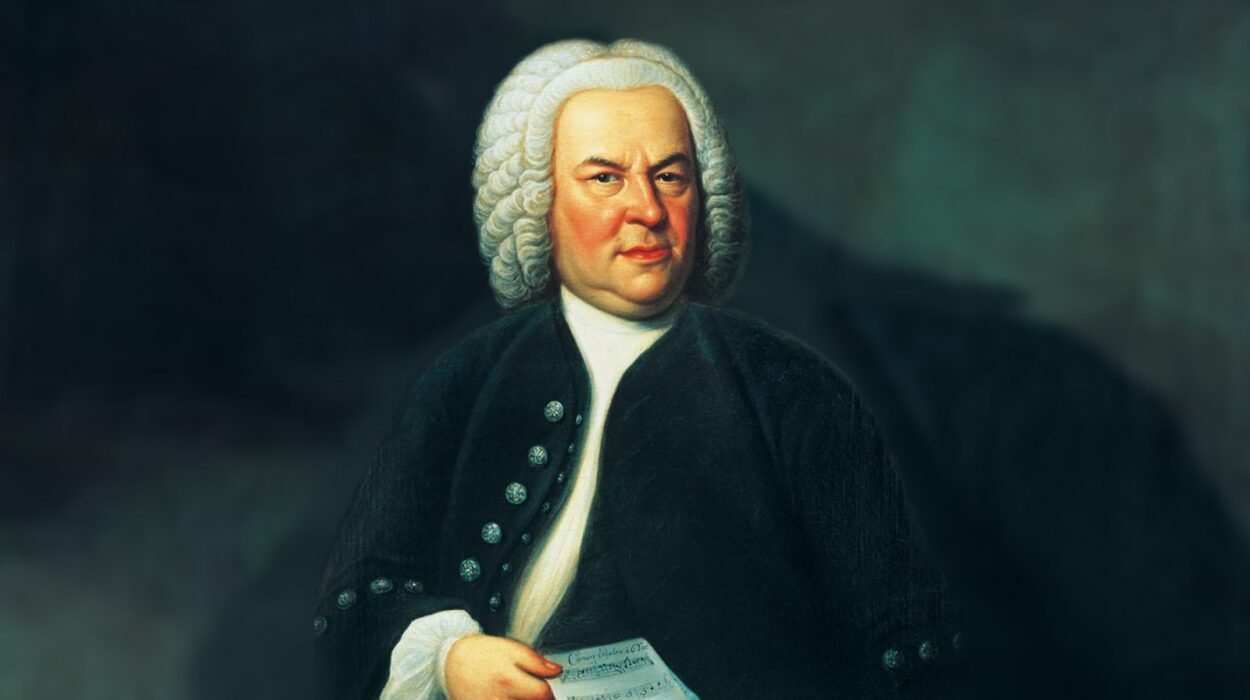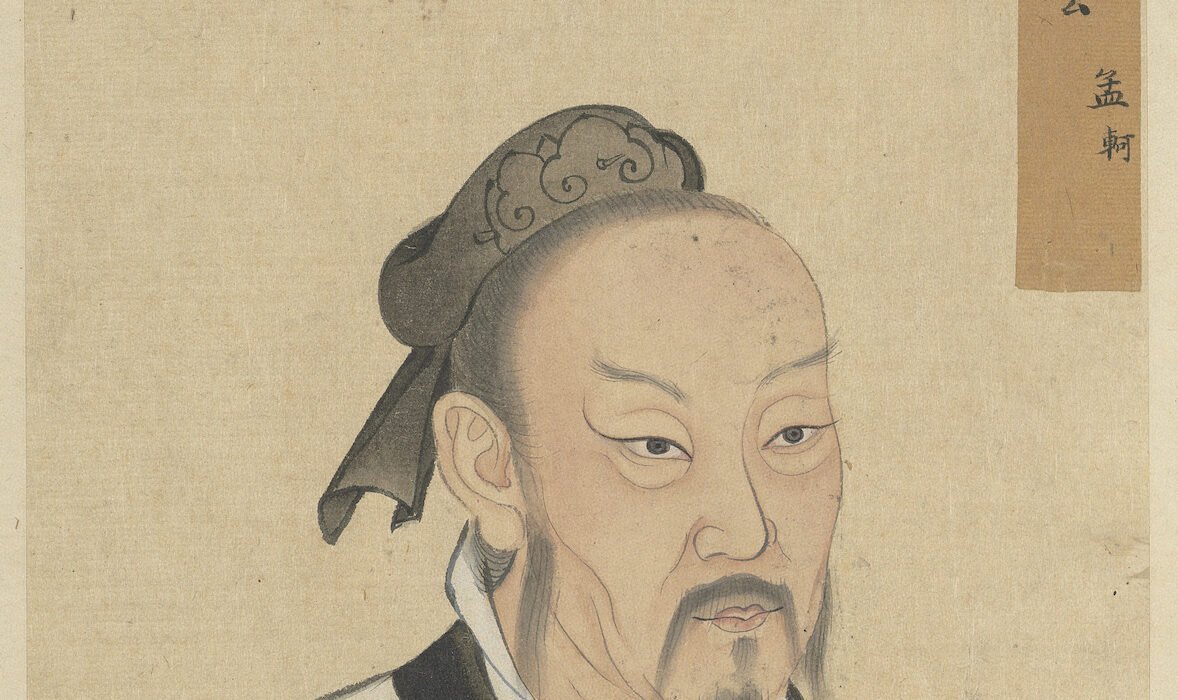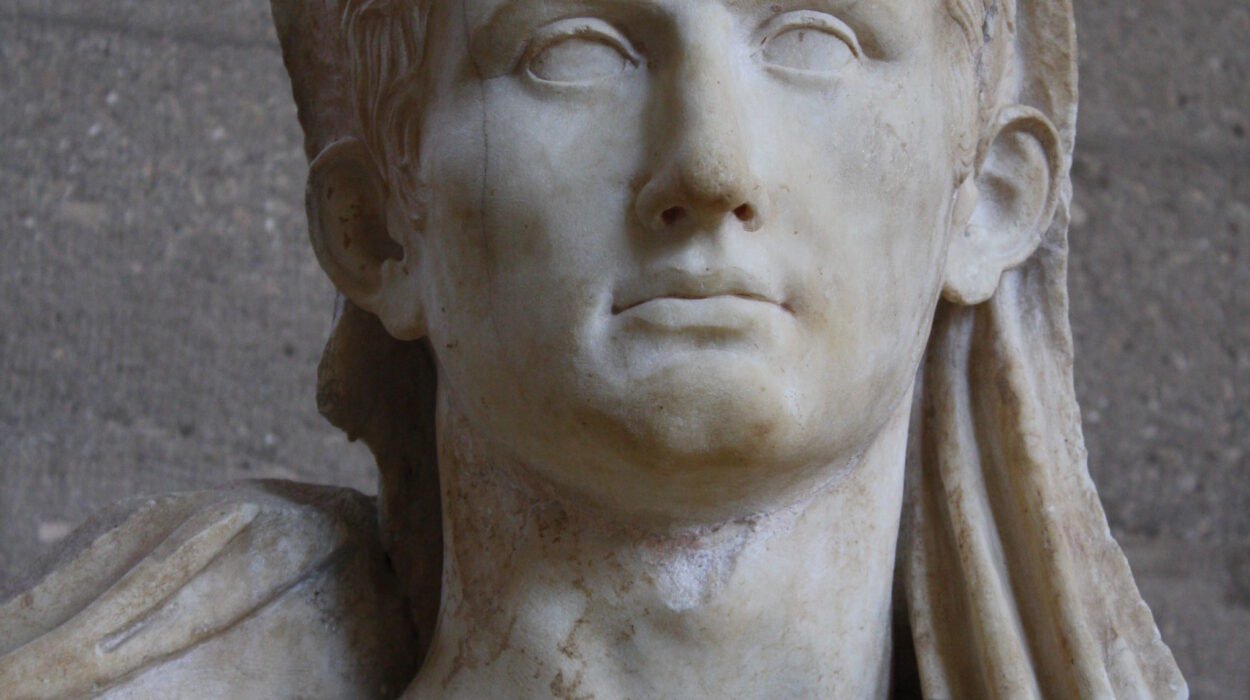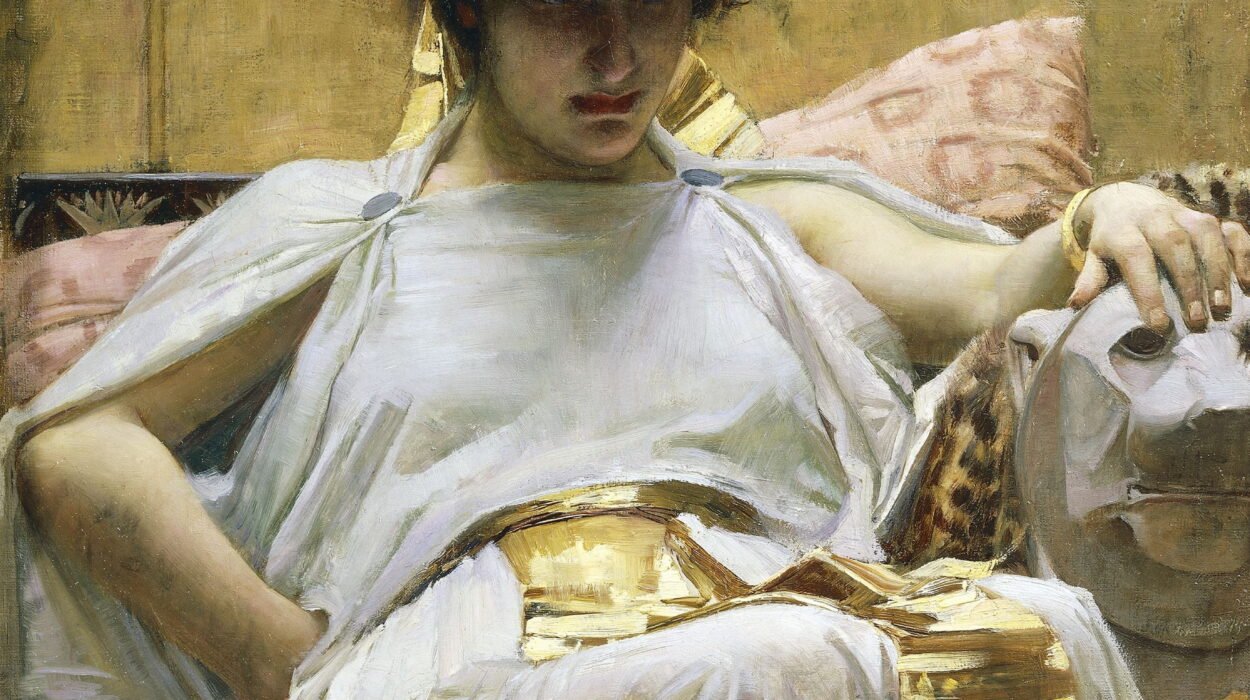Caligula (12–41 CE), born Gaius Julius Caesar Augustus Germanicus, was the third Roman Emperor, notorious for his extravagant, eccentric, and often cruel reign. He ascended to power in 37 CE, succeeding his great-uncle and adoptive grandfather, Emperor Tiberius. Initially welcomed as a promising ruler, Caligula’s early reign was marked by acts of generosity and popular reforms. However, his rule soon descended into tyranny, marked by extreme extravagance, erratic behavior, and allegations of cruelty. Historical accounts suggest that Caligula proclaimed himself a living god, indulged in lavish spectacles, and executed or exiled many, including family members and political rivals. His actions created widespread fear and dissatisfaction, leading to his assassination in 41 CE by members of the Praetorian Guard. Although his reign was brief, Caligula’s legacy as one of Rome’s most infamous and controversial emperors has persisted throughout history, symbolizing the dangers of absolute power.
Early Life and Family Background
Caligula, born Gaius Julius Caesar Germanicus on August 31, 12 AD, was a member of the Julio-Claudian dynasty, one of the most prominent and powerful families in ancient Rome. His father, Germanicus, was a celebrated general and a beloved figure in Rome, while his mother, Agrippina the Elder, was the granddaughter of Augustus, the first Roman emperor. Caligula’s early life was deeply influenced by his family’s status and the turbulent political environment of the time.
Caligula was born in Antium, a town near Rome, during a period of relative stability under the reign of Emperor Augustus. As a child, he accompanied his parents on military campaigns in Germania, where his father commanded the Roman legions. It was during these early years that he earned the nickname “Caligula,” meaning “little boots,” from the soldiers who were amused by the miniature military outfit he wore, complete with small boots (caligae). Despite his later notoriety, this affectionate nickname would follow him throughout his life.
Tragedy struck Caligula’s family when he was just seven years old. In 19 AD, his father Germanicus died under mysterious circumstances, believed by many to have been poisoned on the orders of Emperor Tiberius, who feared Germanicus’ growing popularity. The death of Germanicus was a significant blow to the Roman people, who saw him as a potential successor to Tiberius. Agrippina the Elder, Caligula’s mother, became increasingly vocal in her accusations against Tiberius, accusing him of orchestrating Germanicus’ death.
The tension between Agrippina and Tiberius escalated over the years, leading to a tragic series of events that would further shape Caligula’s life. Tiberius, wary of Agrippina’s influence and her potential to rally support against him, began a campaign of persecution against her and her children. Agrippina was eventually arrested and exiled, and two of Caligula’s brothers, Nero and Drusus, were imprisoned and later died under suspicious circumstances. This campaign of persecution left Caligula and his three sisters, Agrippina the Younger, Drusilla, and Livilla, in a precarious position.
In 31 AD, at the age of 19, Caligula was summoned to the island of Capri, where Emperor Tiberius had retreated. There, Caligula became the emperor’s companion, living under his watchful eye and enduring a life of uncertainty and fear. Despite the hostile environment, Caligula managed to survive by adopting a cautious and obedient demeanor, concealing any resentment he harbored toward Tiberius.
Caligula’s time on Capri exposed him to the darker aspects of Tiberius’ reign. The emperor was known for his debauchery and cruelty, and the atmosphere on Capri was one of moral decay and paranoia. Caligula, who was forced to witness or participate in these excesses, likely became desensitized to the violence and corruption that characterized Tiberius’ rule. This experience would later influence his own reign as emperor.
By the time Caligula left Capri in 37 AD, he had spent several years under the direct influence of Tiberius, who, despite his suspicions, had grown fond of the young man. Tiberius, now in his final years, was suffering from ill health and was considering the succession. In a surprising move, he named Caligula and his own grandson, Tiberius Gemellus, as joint heirs to the throne. This decision was likely motivated by Tiberius’ recognition of Caligula’s potential to command loyalty among the Roman people, as well as his desire to maintain stability within the Julio-Claudian dynasty.
In March 37 AD, Tiberius died, and Caligula, with the support of the Praetorian Guard, swiftly moved to secure his position as the sole ruler of Rome. Tiberius’ death was shrouded in rumors, with some suggesting that Caligula had played a role in hastening his demise. Regardless of the truth, Caligula’s ascension to the throne marked the beginning of one of the most infamous reigns in Roman history. At the age of 24, Caligula was now the emperor of Rome, and the people, who remembered his father’s legacy, initially welcomed him with open arms, hoping for a new era of prosperity and stability.
Ascension to Power and Early Reign
Caligula’s ascension to the throne in 37 AD was met with widespread enthusiasm throughout the Roman Empire. The people of Rome, weary of the harsh and often cruel rule of Tiberius, saw in Caligula the promise of a return to the more benevolent leadership they had known under Augustus and Germanicus. His early reign was marked by gestures of goodwill and acts that endeared him to both the Senate and the populace.
One of Caligula’s first acts as emperor was to publicly honor his deceased family members who had suffered under Tiberius’ rule. He arranged for the return of his mother Agrippina the Elder’s ashes to Rome and held elaborate funerals for his brothers, Nero and Drusus. These actions were not only deeply personal for Caligula but also served to solidify his connection to the revered figures of his lineage, particularly his father, Germanicus. The people, who had long mourned the loss of Germanicus, viewed these gestures as signs of respect and piety, further bolstering Caligula’s popularity.
Caligula also moved quickly to distance himself from the repressive policies of Tiberius. He granted amnesty to political prisoners and recalled those who had been exiled during Tiberius’ reign, including prominent senators and other figures who had fallen out of favor. This act of clemency was widely celebrated and helped to restore a sense of justice and fairness that had been lacking under Tiberius. Additionally, Caligula took steps to reduce the influence of the Praetorian Guard, the elite military unit that had played a significant role in the succession process, in an effort to prevent them from becoming a power unto themselves.
In the early months of his reign, Caligula made a concerted effort to improve the lives of the Roman people. He initiated public games and lavish spectacles, providing entertainment and distractions that were highly popular among the masses. These events, funded by the imperial treasury, were intended to reinforce Caligula’s image as a generous and benevolent ruler. He also undertook several public works projects, including the construction of aqueducts and the improvement of roads, further contributing to the public’s positive perception of his leadership.
Caligula’s relationship with the Senate during the initial phase of his reign was one of cooperation and mutual respect. The Senate, which had been marginalized and intimidated under Tiberius, was initially relieved to see a young and seemingly energetic emperor on the throne. Caligula made a point of consulting the Senate on various matters and even restored some of the powers that had been eroded under his predecessor. This conciliatory approach helped to stabilize the government and created an atmosphere of optimism and renewal in Rome.
However, beneath the surface of these positive developments, there were already signs of the darker aspects of Caligula’s personality. While he outwardly displayed acts of kindness and generosity, those close to him began to notice his erratic behavior and sudden mood swings. Some historians suggest that Caligula may have been suffering from a mental illness, possibly exacerbated by the immense pressures of his position and the trauma of his early life. Whatever the cause, these early signs of instability would soon manifest in more troubling ways.
In the summer of 37 AD, just a few months into his reign, Caligula fell seriously ill. The nature of his illness remains unclear, but it was severe enough that many feared for his life. During this period, there was widespread concern over the future of the empire, and rumors began to circulate about possible successors. Caligula eventually recovered, but the experience seemed to have a profound impact on him. After his recovery, his behavior became increasingly erratic and unpredictable, marking a dramatic shift in the tone of his reign.
Some historians speculate that the illness may have exacerbated underlying mental health issues, while others believe that the near-death experience may have triggered a change in Caligula’s outlook on life and power. Whatever the case, the emperor who emerged from this illness was markedly different from the one who had ascended to the throne just months earlier. His reign, which had begun with such promise, would soon descend into a period of madness, cruelty, and excess that would forever tarnish his legacy.
Descent into Madness
Following his recovery from the mysterious illness in the summer of 37 AD, Caligula’s behavior took a dramatic and alarming turn. The once-popular and seemingly rational young emperor began to exhibit signs of extreme paranoia, delusions of grandeur, and a penchant for cruelty that shocked even his closest advisors and supporters. This descent into madness marked the beginning of one of the most infamous periods in Roman history.
One of the most striking aspects of Caligula’s transformation was his belief in his own divinity. While Roman emperors were often deified after their deaths, Caligula took this a step further by declaring himself a living god. He ordered the construction of temples and statues in his own honor and demanded that the Roman people worship him as a deity. Caligula’s divine pretensions extended to his interactions with the Senate and other officials, whom he expected to treat him with the reverence due to a god. Those who refused to comply with these demands often faced severe punishment.
Caligula’s delusions of grandeur were not limited to his self-deification. He began to engage in bizarre and extravagant behavior that demonstrated his disregard for both Roman tradition and the well-being of the empire. One of Caligula’s most infamous acts was the construction of a massive bridge across the Bay of Baiae. The bridge, which was built at great expense and required vast amounts of resources, was constructed solely to fulfill Caligula’s desire to defy a prophecy that claimed he had “no more chance of becoming emperor than of riding a horse across the Bay of Baiae.” To prove the prophecy wrong, Caligula rode his horse across the bridge, dressed as a god, and reveled in the spectacle. This act of vanity and excess was emblematic of the increasingly irrational decisions that marked his reign.
Caligula’s treatment of the Roman Senate also became increasingly erratic and hostile. Initially, he had worked to restore some of the Senate’s powers and maintain a cooperative relationship, but as his mental state deteriorated, he began to view the senators with suspicion and contempt. He humiliated and insulted them regularly, forcing them to participate in demeaning rituals and addressing them in a condescending manner. The Senate, which had been cautiously optimistic at the start of his reign, now found itself powerless against an emperor who seemed to relish in their subjugation.
One of the most notorious stories about Caligula’s cruelty involves his treatment of his own family. His relationship with his sisters, particularly Drusilla, was the subject of much gossip and scandal in Rome. Some ancient sources suggest that Caligula was deeply obsessed with Drusilla and may have had an incestuous relationship with her. When Drusilla died in 38 AD, Caligula was devastated and declared her a goddess, ordering the Senate to deify her. His grief over her death seemed to deepen his instability, and he increasingly turned against his other family members, seeing them as potential threats to his power.
Caligula’s paranoia led him to execute or exile several members of his family, including his sister Livilla and his cousin Tiberius Gemellus, who had been named as a co-heir by Tiberius. He also ordered the execution of his brother-in-law, Marcus Lepidus, who had been married to Drusilla, after accusing him of conspiring against the emperor. These acts of violence against his own family members further alienated Caligula from the Roman elite and contributed to the growing sense of fear and distrust within the imperial court.
In addition to his cruelty, Caligula’s extravagance and financial mismanagement began to take a severe toll on the Roman economy. The lavish games, spectacles, and building projects that had initially endeared him to the public were now draining the imperial treasury. In an effort to replenish the coffers, Caligula resorted to extortion, confiscation of property, and increased taxation. He even went so far as to auction off the lives of gladiators during public games and levy taxes on marriages and prostitution. These measures were deeply unpopular and contributed to the growing unrest among the Roman people.
Caligula’s excesses also extended to his personal life. He is said to have indulged in extreme debauchery, hosting extravagant banquets where he would engage in acts of gluttony, drunkenness, and sexual immorality. His behavior became increasingly erratic and unpredictable, with reports of him ordering executions on a whim, engaging in violent outbursts, and displaying a complete disregard for the lives and well-being of those around him. His once-strong popularity with the Roman people began to wane as stories of his madness and cruelty spread throughout the empire.
Despite his growing unpopularity, Caligula continued to push the boundaries of acceptable behavior, seemingly convinced of his own invincibility. He made plans to expand the Roman Empire through a series of military campaigns, but his approach to warfare was as erratic as his domestic policies. In one famous incident, Caligula declared war on the god Neptune and ordered his troops to attack the sea, collecting seashells as spoils of war. This bizarre episode further cemented his reputation as a madman and undermined the credibility of his leadership.
As Caligula’s reign descended further into chaos, the once-loyal Praetorian Guard, who had played a key role in his rise to power, began to turn against him. The guard, tasked with protecting the emperor, was increasingly alarmed by Caligula’s erratic behavior and the growing instability of the empire. The Senate, too, began to secretly conspire against him, recognizing that the empire could not survive much longer under his rule. By the end of 40 AD, the seeds of rebellion and assassination had been sown, setting the stage for the violent end of Caligula’s reign.
Assassination and Aftermath
The plot to assassinate Caligula was born out of desperation and a sense of duty among those closest to the emperor. The conspirators, led by members of the Praetorian Guard and several senators, believed that Caligula’s continued rule posed an existential threat to the stability of the Roman Empire. Their fears were compounded by the realization that Caligula had no clear successor, which meant that his death could potentially plunge the empire into civil war. Despite the risks, the conspirators concluded that Caligula’s removal was the only way to save Rome.
The plot came to fruition on January 24, 41 AD, during a series of public games held in the Palatine Games. Caligula, who had become increasingly paranoid and isolated, was caught off guard by the attack. As he made his way through a passageway beneath the Palatine Hill, a group of Praetorian guardsmen, led by Cassius Chaerea, attacked him with swords. Caligula was stabbed multiple times, and his body was left in the passageway. The assassination was brutal and swift, ending the life of the emperor who had once been hailed as the savior of Rome.
The assassination of Caligula was not limited to the emperor himself. The conspirators feared that his death would lead to a power struggle within the Julio-Claudian family, so they took steps to eliminate any potential claimants to the throne. Caligula’s wife, Caesonia, and their young daughter, Julia Drusilla, were also killed in the aftermath of the assassination. This act of brutality was intended to prevent any future claims to the imperial throne from Caligula’s bloodline.
In the immediate aftermath of the assassination, Rome was plunged into chaos. The conspirators had hoped that Caligula’s death would be met with relief and gratitude, but instead, it created a power vacuum that threatened to destabilize the empire. The Senate, which had long been sidelined by Caligula’s autocratic rule, attempted to assert control and restore the republic. However, the Praetorian Guard, who held the real power in Rome, had other plans.
The Praetorian Guard quickly moved to install a new emperor, and their choice fell on Caligula’s uncle, Claudius. Claudius, who had been largely overlooked during Caligula’s reign due to his perceived physical and intellectual shortcomings, was found hiding behind a curtain in the imperial palace. The guards declared him emperor, and he was reluctantly accepted by the Senate. Claudius’ ascension marked the continuation of the Julio-Claudian dynasty, despite the bloody end of Caligula’s reign.
Claudius, who would go on to rule for 13 years, sought to distance himself from the excesses and cruelties of his predecessor. He immediately set about reversing many of Caligula’s policies, including the restoration of legal and financial order, and he worked to repair the relationships between the imperial family and the Senate. Claudius also sought to rehabilitate the memory of Germanicus, Caligula’s father, as a way of legitimizing his own rule.
The assassination of Caligula and the subsequent rise of Claudius did not erase the damage that had been done to the Roman Empire during Caligula’s reign. The financial strain caused by Caligula’s extravagance took years to repair, and the fear and mistrust sown by his paranoid and violent behavior lingered in the minds of the Roman elite. Moreover, Caligula’s actions set a dangerous precedent for the unchecked power of the emperor, a precedent that would have far-reaching consequences for the future of Rome.
Historians and scholars have long debated the true nature of Caligula’s madness. Some have argued that he was suffering from a mental illness exacerbated by the pressures of his position and the trauma of his early life. Others suggest that his behavior was the result of absolute power corrupting him, coupled with a personality prone to excess and cruelty. Regardless of the cause, Caligula’s reign stands as a cautionary tale of the dangers of autocracy and the fragility of political power.
In the centuries that followed his death, Caligula’s name became synonymous with tyranny and insanity. His reign, though brief, left an indelible mark on the history of Rome and served as a grim reminder of the potential for abuse of power in the hands of a single ruler. The stories of his cruelty, excess, and madness became part of Roman lore, passed down through generations as a warning of the perils of unchecked authority.
Legacy and Historical Interpretation
The legacy of Caligula has been one of enduring fascination and controversy. While his reign lasted only four years, the impact of his rule and the stories of his excesses have left a lasting impression on both contemporary and modern interpretations of Roman history. The narrative of Caligula’s life and reign has been shaped by the accounts of ancient historians such as Suetonius, Tacitus, and Cassius Dio, who painted a picture of a tyrannical and insane ruler. However, the accuracy and motivations behind these accounts have been the subject of much debate among historians.
Ancient sources portray Caligula as a monstrous figure, consumed by madness, cruelty, and excess. Suetonius, in his work The Twelve Caesars, describes Caligula as a man who “lived in the habitual practice of every imaginable vice,” detailing his debauchery, arbitrary executions, and delusions of divinity. Similarly, the historian Cassius Dio recounts the emperor’s bizarre and often terrifying behavior, painting a picture of a ruler who wielded power with little regard for the lives of his subjects. These accounts have profoundly influenced the perception of Caligula throughout history, solidifying his reputation as one of Rome’s most infamous emperors.
However, the reliability of these sources has been questioned by modern historians. The accounts of Suetonius, Tacitus, and Cassius Dio were written several decades after Caligula’s death, and their works reflect the biases and political agendas of their time. For instance, these historians were writing during the reigns of emperors who were keen to distance themselves from the excesses of their predecessors, and portraying Caligula as a tyrant served to legitimize their own rule. Moreover, these accounts were intended for a Roman audience that already harbored negative views of Caligula, making it difficult to separate fact from embellishment.
Some modern scholars argue that Caligula’s reign, while undoubtedly marked by excess and cruelty, may not have been as uniformly disastrous as ancient sources suggest. For example, Caligula’s early reign saw a number of positive developments, including the restoration of some Senate powers, public games, and the completion of several building projects initiated by his predecessors. These actions suggest that, at least initially, Caligula sought to govern Rome effectively. Additionally, some of his more outlandish actions, such as the declaration of war on Neptune and the collection of seashells as spoils of war, may have been exaggerated or misinterpreted by hostile sources.
The question of Caligula’s mental state is also a matter of debate. While ancient sources describe him as being deranged and delusional, modern historians have considered other possibilities, such as the effects of illness or trauma. Some have speculated that Caligula may have suffered from a form of epilepsy or another neurological disorder that could explain some of his erratic behavior. Others suggest that the stress of ruling an empire at such a young age, combined with the trauma of his family’s brutal treatment and early deaths, may have contributed to his psychological decline.
Despite these efforts to reassess Caligula’s reign, his legacy as a mad and tyrannical ruler has endured in popular culture. The image of Caligula as a symbol of absolute power gone wrong has been perpetuated through literature, theater, film, and television. In these portrayals, he is often depicted as a figure of excess, decadence, and unrestrained cruelty, embodying the dangers of autocratic rule. The 1979 film Caligula, directed by Tinto Brass, is perhaps the most famous example of this portrayal, presenting a sensationalized and graphic depiction of the emperor’s life.
In addition to his cultural impact, Caligula’s reign has also served as a point of comparison for other rulers throughout history. His name has been invoked to criticize leaders who exhibit similar traits of tyranny, cruelty, and irrationality. This enduring legacy has made Caligula a figure of both fascination and revulsion, embodying the worst excesses of imperial power.
The broader historical significance of Caligula’s reign lies in what it reveals about the nature of Roman imperial rule. His ascent to power, despite his youth and lack of experience, underscores the vulnerability of the Roman political system to the whims of individual rulers. The Senate’s inability to check his power, and the Praetorian Guard’s decisive role in both his rise and fall, highlight the precarious balance of power within the empire. Caligula’s reign also serves as a reminder of the dangers of concentrated power, where the stability of an entire empire can hinge on the mental state and personal whims of a single individual.
In the centuries that followed Caligula’s death, the Roman Empire would experience both periods of stability and further episodes of imperial excess and cruelty. However, the lessons of Caligula’s reign would not be forgotten. His story became a cautionary tale, warning future generations of the potential dangers of absolute power and the consequences of unchecked ambition.




